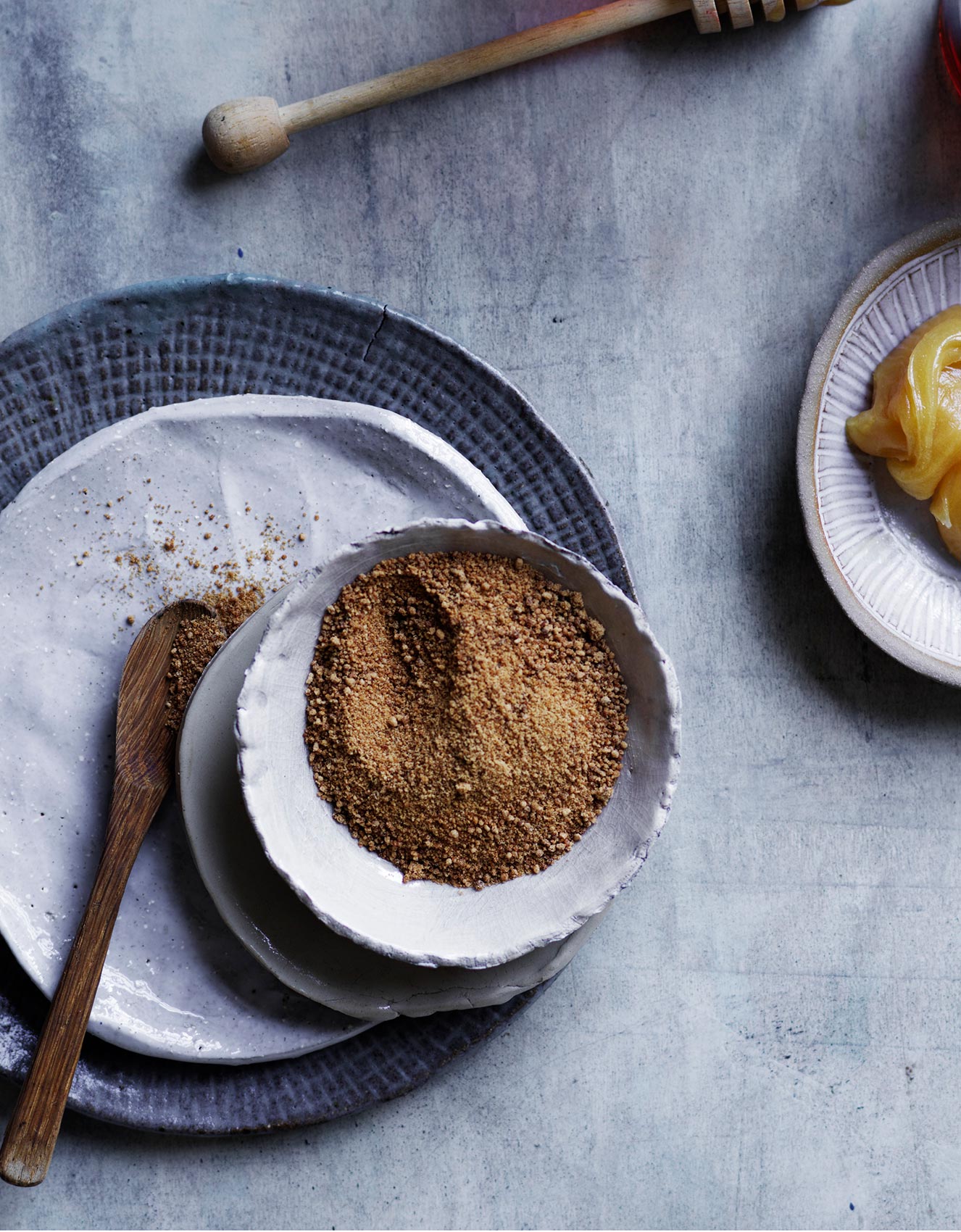Does cutting sugar reduce your preference for sweetness?

There is a question that has plagued nutritionists and taste scientists for some time now: does cutting back your sugar intake reduce your preferred level of sweetness? In other words, if I eat less sugar, will I want less sugar?
We already know the answer to this when it comes to salt. If you’ve read either of my baby toddler cookbooks, you’ll have heard me talk about how our liking for salt is flexible. If you put yourself on a low-salt diet, your taste preferences will soon adapt and your liking for salt will reduce. In simple terms, the more salt you eat, the more you want; the less salt you eat, the less you want. Which is fantastic, because it makes it quite easy to adapt to less salt in your life.
But, the big question is … is the same true for sugar? If we consume less sugar, will we want less sugar?
Late last year, some ground breaking research came from the Monell Chemical Senses Center in the US that helped to answer this question. The aim of the study, which involved 16 adults, was to determine whether a person’s sweet taste perception and preference can be shifted by reducing the amount of sugar in their diet.
The subjects were put on a reduced-sugar diet for three months. Prior to starting the diet , they rated the sweet taste intensity and pleasantness of vanilla puddings and raspberry beverages, varying across a spectrum of sweetness (using sucrose).
After three months on the reduced sugar diet, the subjects found that the pudding and the beverage tasted sweeter than before the diet. However, most critically, despite this difference in sweetness ratings, their three months of sugar restriction did not influence their most preferred amount of sucrose in either the pudding or the beverage. That is, their liking for a particular sweetness went straight back to where it had been before the low-sugar diet.
As the lead author of the study, Paul Wise, comments: “People who had been on a low-sugar diet for three months quickly went back to their previous sugar levels when given a choice.” He says “this rapid rebound suggests that people may resist changes in the sugar level of their diet.”
Observing the crucial difference between studies on salt and sugar preference, study co-author Gary Beauchamp, says: “The factors that underlie liking for sugar and salt may differ. The salt findings formed part of the rationale for … decreasing salt consumption by gradually lowering the amount of salt in prepared and restaurant foods. But this same tactic may not work as well to help reduce the amount of sugar that people consume.”
Moving forward, the Monell Center would like to test the findings in a larger-scale study. It says: “the researchers would like to use a larger number of subjects to ask whether a longer period on a low sweetener diet may eventually change preferences for sweet foods.”
So what does this mean for us in everyday life? Should we give up hope of ever changing our particular preference for sweetness?
While our sweet preference appears from this study to be quite static, our preference for other tastes might not be. We know that’s it’s certainly flexible for salt. So, although you might prefer the taste of coffee with two sugars, perhaps you can learn to like the bitter taste of unsweetened coffee, if you’re exposed to it enough times. I always used to drink sweetened tea, but after months of training, I’ve actually come to prefer tea with no sugar, and I’m sure it’s because I’ve developed a greater liking for the slight bitterness. So even though my preference for sweetness might have remained set, my preference for bitterness (for example) might have increased. Reducing sugar in your diet may not adjust your preferred level of sweetness, but perhaps it will adjust your liking for the taste of the foods you had previously masked with sugar.
Let’s remember also that the study did not involve children. We know from other research done by the Monell Center that children live in a different sensory world to adults, and that their taste preferences are more flexible than ours. Although babies are born with an innate liking for sweet tastes, this liking is shaped by the foods they’re given in the baby and toddler years. A child will eventually learn to like bitter flavours found in certain green vegetables, for example, but only if they’re exposed to them.
This is why it’s so crucial you don’t sweeten your child’s food. If they’ve only ever tasted spinach mixed through a chocolate brownie, they’re never going to learn to accept the flavour of spinach by itself (you can read more about the pitfalls of sneaking vegetables in my blog post here).
One thing that’s for certain is that sweet preference is an area that requires considerably more research, particularly given it’s impact on diet, nutrition and obesity. I’ll be sure to keep you posted of any developments.
In the meantime, if you wish to read more about the Monell study, you can do so here: http://www.monell.org/news/news_releases/low_sugar_diet_sweet_perception_preference